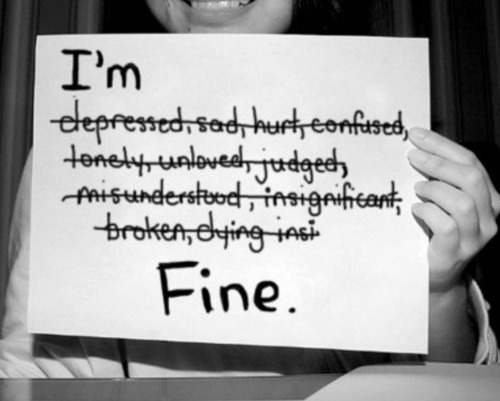Avoiding Post-Divorce Depression
7 Horrible Financial Bombshells For Divorcing Women
August 20, 2018
CAN I DATE DURING MY DIVORCE?
October 11, 2018Avoiding Post-Divorce Depression
During and after divorce men are at a higher risk of suffering from depression.
A couple of ways to fight depression are therapy and developing a support system
Everyone knows that the divorce process creates an unbelievable amount of stress, but the problems really begin to escalate when this leads to conditions that are more serious.
Financial worries or a change in your life to a weekend dad can create the turmoil in a man’s life is plenty to drive anyone to the verge of collapse.
Depression is a common and potentially debilitating mental health condition that impacts every aspect of your life, and the chances of falling into a depression increase greatly following a divorce.
Nevertheless, there are steps you can take to mitigate your chances of suffering from depression after the end of your marriage, and it begins with identifying your risk level.
Men are at increased risk of post-divorce depression
Studies have found a greatly increased risk of depression for those going through divorce, which is even more of a problem for men who are nearly twice as likely to suffer from post-divorce depression as women.
While every person deals with significant and sudden life changes differently, you can be sure almost everyone going through divorce will feel some form of loss and confusion. There are many factors that likely contribute to the fact that men have a significantly higher rate of depression after a divorce than women, which include:
Who is more likely to initiate a divorce (The Wife) — The person who files has likely spent time contemplating their future before coming to the decision that it is time to divorce, often leaving their spouse caught completely off guard and left in shock (which more often than not is the husband).
Men are more likely to lose custody of their children — Although strides are being made to give fathers the custody they deserve, the mother is still more likely to obtain primary-parent status.
This can (understandably) be a hard pill to swallow for many fathers who have loved and supported their children their entire lives.
Men are less likely to have a system of support — Likely one of the biggest reasons men have a more difficult time coping with divorce is that they tend to keep their problems to themselves, whereas women are much more likely to share their pains with friends, family or professionals.
Divorce is not something you should go through alone.
Men often have greater financial obligations post-divorce — With child support almost always being awarded to the parent with more custodial time, this can be the icing on the cake for fathers who feel they were slighted with the custody decision.
Additionally, the vast majority of alimony obligations are held by men despite the growing number of breadwinner wives.
Many other situation factors — Every couple will have different circumstances that led to the end of their marriage, which leaves plenty of room for factors such as infidelity, health problems, substance abuse, etc., to play a role in post-divorce depression.
Additionally, you are at an even greater risk of developing depression if you have suffered episodes of depression in your past. If you are a man who has dealt with depression before and are going through a divorce, you need to be acutely aware that you are in a very risky spot and should not hesitate to seek help if you need it.
Mitigating chances of post-divorce depression
Just like there is no such thing as a one-size-fits-all divorce, there is no single method that will work for everyone in coping with the aftermath.
It will be up to each individual to find a personalized technique for managing the stress of their own unique situation, and there are plenty of suggestions put forward by experts and guys who have been through divorce to help give you some ideas.
Build a support network — Everyone needs an outlet to help them work through all the negative aspects of a divorce, and there are plenty of support groups and options out there for men that are just a quick Google search away.
Whether it’s simply a friend who allows you to vent, a group or a professional therapist, it is important not to hold everything inside when you are going through a divorce.
Try not to dwell on what you can’t control —You got the short end of the stick when it comes to custody, a child support and alimony obligation and your ex got the house. Unfortunately, unless there was a mistake or the law was applied incorrectly, there is likely little you can do about it.
However, you can control focusing on moving forward and making the best of what you do have. Make the best of your time with your kids, and avoid letting anger and frustrations spill into other areas of your life (easier said than done of course).
Immerse yourself in something constructive — Anything from a new hobby to losing yourself in an engaging book or compelling TV series can help take your mind off the things that are out of your control.
Use the divorce as an opportunity to try something new or pick up an old passion and channel your negative energy into something positive. Perhaps you used to like tinkering on cars but you didn’t have the time while you were married, or maybe you’ve always wanted to try your hand at woodworking — this is your chance to do something new.
Avoid the rebound — Too many guys run into the problem of jumping into new, unhealthy relationships before they have fully healed from the divorce. Whether you are trying to replace your partner or you think it will help you move on more quickly, pump the brakes before getting too serious.
More often than not, rebounds end poorly.
Stay healthy — Eating a balanced diet and regular exercise are a great way to naturally fight depression by increasing the amount of healthy chemicals, such as serotonin, in your brain. Additionally, it will help you sleep better, feel better and boost self-esteem – all of which are great natural ways to stave off depression.
It’s easy to fall into a routine of self-medicating with booze and junk food, but this pattern of behavior will only serve to worsen the symptoms of depression long-term.
Depression is a serious condition and it is no mystery why such a traumatic, life-changing event like divorce dramatically increases your risk of developing depression.
However, there are plenty of ways to fight off the causes of depression, and a good support group will help you get through the worst parts of the divorce without it having a major impact on your life moving forward.
If you do find yourself feeling depressed, do not feel like you are alone and please seek medical advice immediately.


